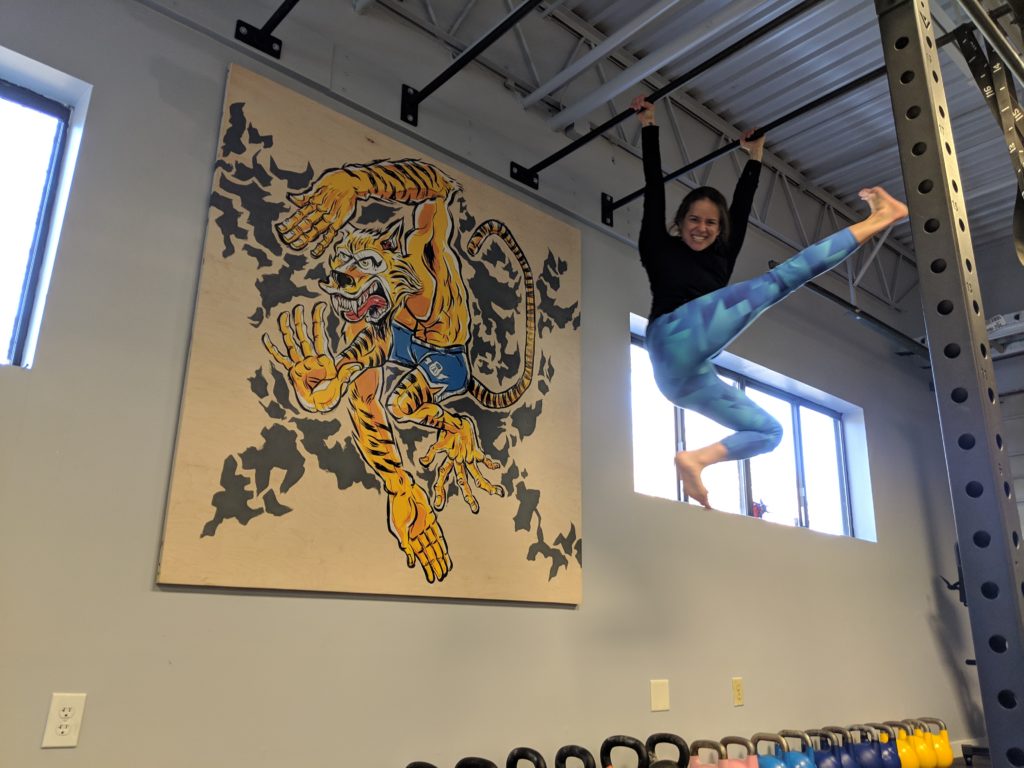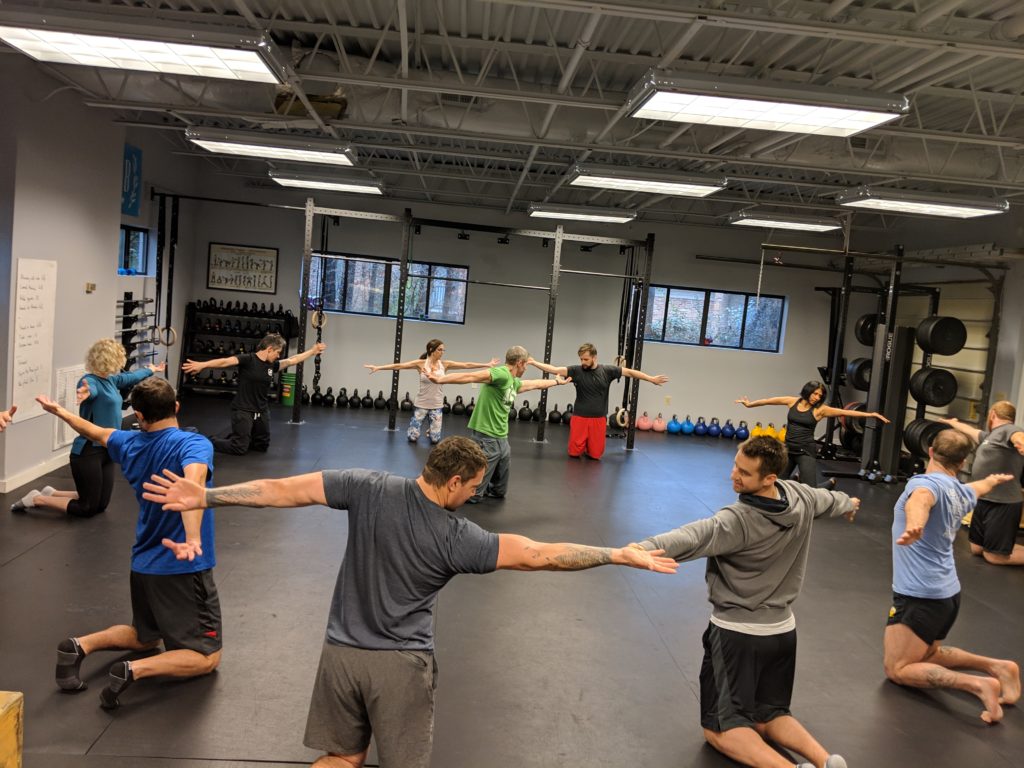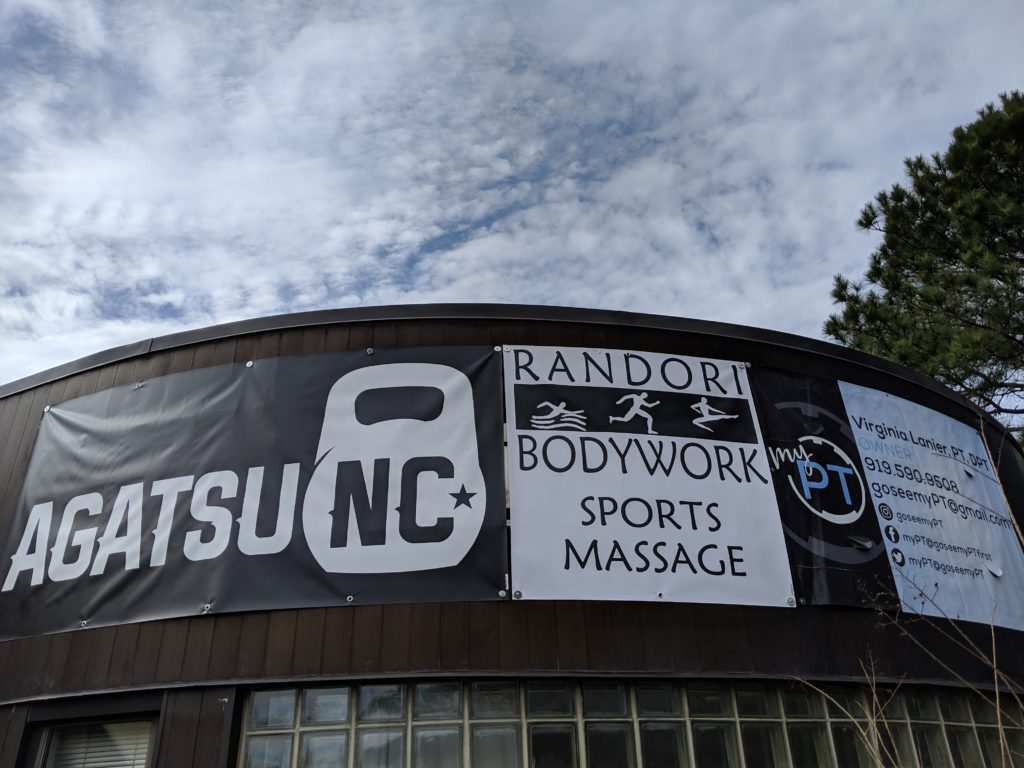When someone finds out that I’m a trainer in casual conversation, often the first think they ask is some variation of “What’s your biggest tip for a newbie trying to get fit?” I hate the phrasing in that question, because it shows a low level of investment by the asker — more like they’re asking for a shortcut. The better question might be: “What is the first thing I should do if I’m serious about getting fit?”
Now we’re talking. And even though my answer to both questions is the same, if you ask a better question I’ll feel more confident that you’ll actually do something with the answer.
Get a coach.
We’re going to talk about why having a good coach matters and the importance of your personal investment.

WHY IT MATTERS
People love to pick on Planet Fitness, because it can seem silly. (Pizza night at the gym, really? Lunk alarms?) But they are just the byproduct of a culture that wants everything quickly, cheaply, and with minimal use of their bodies and brains. Impersonal big-box gyms, as-seen-on-TV exercise devices, low-cost fitness apps for your cell phone — the point is not necessarily to get you fit, but to fill a need that we as a society have created with our lifestyles.
Instead of physical fitness, let’s call that kind of thinking “exercise as a task.” We just want to check it off our to-do lists.
Fitness is full of the exercise equivalent of get-rich-quick schemes because we make it so. And thus anyone entering into the fray has to swim through all the garbage, whether they’re serious about getting fit or not. And when you’re bombarded by $39.99 at-home DVD workout ads or $15/month gym memberships, investing $175/month on group classes — or $85/hour on personal training — can seem steep. Until you realize that those DVDs would get more use in your home as coasters, and that Shake Weight is just biding its time before heading to the thrift store.
Finding the right coach for you immediately cuts through all the nonsense. It’s true that there’s lots of information out there, and much of it available for free. But that mindset of “I can do it myself with the internet!” is often just a stalling tactic when it comes to fitness, because there’s so much to dig through and that’s what’s going to take all their time. People who build their fitness around things they found on instagram or by pirating popular books are not serious about their health.
A good coach may be expensive, but a bad one — or no coach at all — may be more so. It just may be a different type of cost, like a major injury that not only takes you away from fitness, but from work, family, and other activities that you enjoy. Medical bills, physical therapy, the hit to your confidence, and the possibility that your knee/shoulder/back will never work quite the same for the rest of your life — these are the hidden costs of treating the health of your body like an afterthought.
Having a good coach can keep you engaged, teach you new things, decrease your pain, protect you from future injury, and help you focus. If you want to get fit and stay that way, you’re going to have to pay attention and learn some things. A coach can help you do that.
YOUR INVESTMENT
If you are truly satisfied with your fitness routine, whatever it is, then you are doing fine. No judgments here. This article is addressing those who fit one or more of the following criteria:
- Do not enjoy exercise
- Feel lost, confused, or like something is missing
- Like what they’re doing, but experience pain on a regular basis
- Are getting bored with their routine
Sound like you? Then listen up. If we want a better, fitter culture, we have to be willing to raise our own expectations and personal investment. We have to be willing to show up with our money, time, and attention. You’re going to have to do a little more work — mental and emotional as well as physical.
Yes, there are confounding factors. The path to getting fit is a little different for everyone. Schedules, finances, availability of good coaching/gyms in your area, support networks, genetics, even the weather. But one thing that’s the same in anyone who is especially fit is that they have a high level of internal personal investment.
Every single one of the actions necessary for getting better is on you. Even a good coach can only point the way. But if you’re truly invested, finding a teacher is the best place to start.

HOW TO FIND A GOOD COACH
Coach Tania, head coach at Agatsu Winnepeg, recently shared a great primer on why you need a coach. But she only touched briefly on the HOW. Here’s our (expanded, but still incomplete) take. A good coach:
- Is open to questions
- Values their own health and quality of life
- Is always learning
- Is never dogmatic
- Has a plan
- Is patient
- Emphasizes communication
A good coach won’t be dismissive of your concerns. If you have questions, they’ll do their best to answer. If they don’t know the answer, they’ll tell you. Then they’ll either find the answer for you or point you in the right direction. A coach who ignores questions, belittles you for asking, or answers you by talking in circles probably is more interested in the idea of being a coach than actually coaching. If they’re not open to questions, they’re skipping over the foundational characteristic of being a teacher.
A good coach also values their own health. A fitness professional is a walking billboard for their beliefs and services, so have a good look at your potential coach. How do they move? Are they strong? Do they communicate well? Do they have a “tell” that indicates they’re not taking the best care of themselves, such as being constantly tired or injured? Do they move gracefully or kind of clunky? You’re putting your body under this person’s care — if they can’t take care of their own, how good of a job do you think they’ll do on yours?
Injuries happen, sure. And many of the best trainers got that way by facing adversity, whether internal or external. But if you’re being trained by someone who always seems sidelined by pain and damage, it’s worth taking a closer look. Whenever possible, I want to be trained by a coach with relatively few injuries who moves like I want to move, seems present, well-fed, and well-rested.
Even if they’ve been injured, or are currently, you can tell a lot about them by how they respond. Did they learn anything from the experience? Do they seem interested in learning more generally? This is absolutely vital. There is so much to know about the body and mind, and anyone who claims to have a finalized system in place is already situating themselves to be limited in how far their system can go. A good coach is always learning.
A good coach also applies that learning by having a plan. If they are often late, scattered, inattentive — chances are they’re just winging it. If they attend a lot of seminars but nothing in their style ever shifts, they’re not practicing and applying new things — they might just be certificate collecting.
Patience is also a huge factor. There are a lot of trainers who like to focus exclusively on more experienced athletes, because it’s much easier. Newer athletes need more time and attention. So how much do you get on their nerves? If the answer is “quickly and often,” your progress is going to be slowed by their temperament.
That goes hand in hand with their ability to communicate. A good teacher communicates clearly. If an explanation or demonstration doesn’t work, they try another one. Their language and techniques are always being refined. Their ability to communicate pulls the above points together nicely: it helps them listen and answer questions better, helps them organize their thoughts and goals to better take care of themselves, respond well to adversity, and be more patient since they know what they want to say.
HOW INVESTED ARE YOU
I want to wrap up by emphasizing that I am not advocating for or against any specific fitness modality. That part is up to you. From kettlebells to kung fu, there is an enormous variety of physical activity out there. What sparks your curiosity? In this highly connected era, chances are you can find most of the information you may need from a book, website, app, or youtube video.
But the information itself is not the way. Practice is the way. We have evolved as a social species that needs touch, presence, and a good-faith exchange of ideas. Even the best train-at-home methods can’t compete with the eyes and mind of a solid teacher. Are you invested enough to find someone to train you in the way you want?
In our next post, we’ll explore more of the elements one needs to succeed in fitness — as athlete or trainer or both!


1 thought on “How invested are you in your physical fitness?”
Comments are closed.